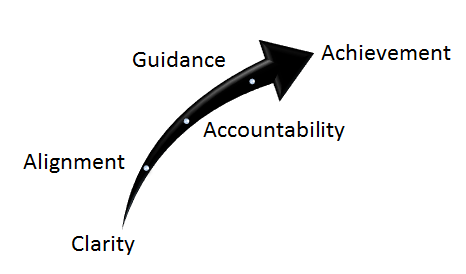|
We know the irony of us emailing this, however we think there is an important issue that needs to be addressed in nearly every workplace.
Change Agents, we need to initiate a chat in our workplaces about email. It has become the most over-used form of communication and it is to the detriment of our productivity and working relationships. We get emails from our colleagues, our clients, our suppliers, and even our workplace systems. We send emails about losing our stapler, important client meetings, big company announcements, and project updates. They all go into our inbox as though they are equal. All emails are equal, but some are more equal than others. It really is like Animal Farm as we try to organise, prioritise, and keep up with the constant bombardment and move from one email distraction to the next. It would be possible for many of us to work entirely from our inbox for the whole day. Some people may even go home after their day in their inbox actually believing they have achieved something. Some people even think they have done something, because they sent an email about it. Email is the lazy communicators best friend, and we have all fallen into the laziness trap from time-to-time. We may fall into the trap when we email rather than pick up the phone, when we send a group email rather than organise a meeting, when we email because we are not prepared to listen, or especially when we email because we are scared to have the face to face conversation. They're not funky, trendy, or hip like the latest technology, but our ears and mouth remain the best apps for human-to-human communication. Let's call it the 'human' app. We can even incorporate our eyes into the 'human' app as well, and then we add a whole level of 3D communication that email can't come remotely close to in terms of effectively sending and receiving complex messages. There are some important things we should consider before we choose our method of communication:
Email is a great tool when:
So that's the good part of email. Of course, sometimes email is useful beyond these situations, but if email has become your go-to method for most of your communication with your colleagues then you may be in danger of falling into the lazy communicator trap. 7 Signs that you have definitely fallen into the lazy communicator trap with your colleagues are when:
Email has the advantage of being instant, but it is very difficult to communicate the nuance of emotion in writing, and because it is instant, it can be sent and received right at the emotional peak, when we are most likely not our best selves. As other tools are coming into our workplaces to complement our email systems, such as instant messaging and group chats, then it is important that we don't let these bad habits just migrate to the new platforms. Setting and documenting the standards in team communication is an important part of establishing a productive workplace culture. We help our clients develop their communications policies and provide team training on how and when to use the various approaches (including email, instant messaging, face-to-face conversation, team meetings, and social media) in team communication. Finally, please remember that you can avoid adding to the email scourge. If you receive an email where the response would be better handled by phone or face to face conversation, then don't hit reply. Remember the 'human' app. Start the conversation, build the relationship, and demonstrate the value of effective voice communication.
2 Comments
Work’s starting to go into Christmas mode, the party invites are flooding in, and you’re having thoughts of next year. People are feeling buoyed, they’re planning social events, and they’re thinking of their holidays.
What better time of year for planning?! When your people are riding high on the festive season, why not take advantage of that high and the usual lull in activity and plan a strategy getaway. December or January? Well probably January is best; people have a feeling of renewal, so that’s probably a good time to talk about your business renewal as well. Our recommendation would be to make an event of it. Why not get away from the office for a couple of days to somewhere nice, get your people focused on moving business forward, and at the same time it gives people the opportunity to connect with each other in a more social setting. So, how do you approach this? Well start your planning right now; don’t leave it any longer or it will likely fall between the cracks of too much food and drink in the coming weeks! SEVEN STEPS TO STRATEGIC PLANNING
It's wonderfully contagious, and it's highly addictive. We crave it. It is the feeling of inspiration. It creates energy, focus, and action. It builds resilience and determination. It encourages collaboration and teamwork. It generates invention, creativity, and learning. It ultimately creates that sense of achievement we all desire from our work. It is that moment you decided to start your business, when you decided that you were ready, and that it was time to take action. So imagine that moment instilled in your team, and it being their ongoing inspiration to grow your business with you. To do it, you have to ignore a lot of the things that you have read, experienced, or been advised about HR. In many larger organisations, the experience of working with HR is very much like the experience of working with purchasing or contracts management. The corporate approach to HR especially does not work in small businesses. Actually, we'd argue it doesn't work particularly well in large ones either. It's usually overly focused on reducing risk rather than nurturing inspiration. The corporate approach doesn't address any of the aspects of creating a great place to work. As a small business owner, especially with a small team where every person can have a big impact, it is far more helpful to have the emphasis on inspiring contribution, ownership thinking, and accountability. We're certainly not suggesting that risks should be ignored, just that it needs some perspective. Excessive focus on compliance with tasks and nurturing inspiration sit at opposite ends of a spectrum. It needs a balance, and when you get it wrong then accountability drifts too far towards the manager. The typical corporate HR could be described as the 'purchasing' approach. THE 'PURCHASING' APPROACH TO HR The HR function in most large organisations actually looks very similar to the contracts and purchasing function. Managers go to HR to source a 'resource'. HR find a bunch of candidates, some interviews are done, and someone is chosen. Then HR do up a contract and establish the rules for managing the 'resource' to ensure compliance with the contract. It's just like engaging a supplier, only without the purchase order. If you look closely though, the task-based job description is kind of the HR version of the purchase order. The performance review is the contract management part - making sure the 'resource' is complying with the contract specifications. So much for employee engagement and loyalty then, and any accountability by the 'resource' arising from this process is purely accidental. Why would they risk going 'above and beyond'? Focusing on compliance does not create accountability. It usually creates compliance to the bare minimum needed for people to keep their job. In so doing it leaves all of the accountability with you, the manager. When things don't go to plan it is you who will have to stand up, it is you that looks to take the corrective action, and it is you who is left to complete the tasks that needed to be done. People become 'resources' to be managed. There is nothing inspiring in this - for anyone! This process does not encourage invention, creativity, or learning. In fact, it may well discourage them because the person engaged in this process, who is being managed, is more likely to want to ensure they comply with the job description, even when they believe the tasks in it are not the best thing for the business. We've worked with a local manager in a large multi-national organisation who recognised this. He engaged us to help him build his team and instil an approach for nurturing their growth. The company's HR approach, based on compliance rather than relationships, was actually a barrier to achieving collaboration, teamwork, entrepreneurship, and accountability. A different approach is needed, and thankfully there is one. A relationship approach shifts the focus towards achievement and accountability.
The relationship approach starts with having mutual clarity of the outcomes that need to be achieved. Alignment takes place when the team members themselves can establish and agree the tasks that will deliver the desired outcomes. Accountability is the willing agreement between team members and managers on what achieving the outcomes will look like, and the participation in an ongoing and meaningful conversation about performance. Then the manager can give guidance as different situations arise and there can be a genuine dialogue based on a common desire to achieve the outcomes. When things don't go to plan, the manager can guide their team on the corrective actions. The team can accept the accountability as it has already been established and agreed on what performance will look like. This approach is more natural and effective than the purchasing approach. Especially as a small business owner, where the business is connected to their personality, this approach builds the relationships in the business that allow you to grow your brand. It is less time consuming, and enables more meaningful conversations with your team about their contribution to the business. It inspires. We built a system for instilling this HR approach. We created it because we saw the lost opportunity that occurs when small business apply the purchasing approach to building their teams. When small business owners are able to share their inspiration, it is contagious for their team. It is the foundation for ownership thinking and in creating the willingness for your people to put their own reputations on the line to help grow your business. We've designed and facilitated many short HR programs for small business owners. Before each program begins, we ask owners what they're wanting from attending, and we're told:
We get it. These issues are raw and real. The idea of growing a business should be inspiring, but these issues dampen your enthusiasm and get in the way of your inspiration. We know that employing people is expensive and recruiting is time consuming. Compliance can be scary. There can be a a feeling of loss of control. It is often difficult, and frustrating, to get the commitment from people that brings accountability and ownership thinking. For some business owners, the reaction to the frustration has been to tighten 'management control'. They take an adversarial approach, excessively focus on compliance, and use money as an incentive to performance. Far from relieving the stress and frustration, this adds to it, because there is nothing inspiring about conflict or forcing compliance. Some business chambers even seem to encourage that broken HR model, with their adversarial approach based on 'them and us'. Change Agents - here's a new mission. It's time for a new approach, coming from a belief that everyone is seeking, and deserves, the feeling of satisfaction that comes from inspired contribution. An approach from the belief that everyone has the right, and innate capability, to create the extraordinary. So, how can we deliver it? LEARNING FROM A CRISIS SITUATION We often see the best of people's behaviour when there has been a crisis. One such situation was in January 2011 when there was severe flooding in Queensland, including the Brisbane CBD. Three days after the floods had moved through Brisbane, the government called for 6,000 volunteers to assist with cleaning up. Actually, the response was that 80,000 people came out to volunteer in the worst affected areas of Brisbane. Think about the work they volunteered to do. The stench of sewage, the hard labour of shovelling and cleaning. Dealing with the emotions of those who had lost so much. They probably never worked harder in any job, but when they went home exhausted at the end of the day, they would have felt such an enormous feeling of satisfaction from their contribution. Nobody told them to do it, nobody paid them, and nobody told them how to do things once they were there. In this crisis, there was the perfect example of the natural human desire to:
A RELIABLE PEOPLE MANAGEMENT PROCESS FOR SMALL BUSINESS We realised that we could develop a reliable people management process for businesses that provided these natural human desires, and in so doing, reduce the fear and stress for business owners by transforming away from the old command and control approach. A few weeks ago we talked about the joy of being your own boss? Would you like to instil that joy in your people? Here's 5 ways to do it:
We created The H Factor system to help business owners overcome the fear of growing their team. We know there are lots of people with advice, mostly from people who have never run a business, so this system is designed to guide you on your journey and give you the confidence to proceed with purpose. |
AuthorsH Agents write about the joys and challenges of entrepreneurship and managing people. Archives
May 2024
|
(c) Copyright 2024 INCOMMAND Pty Ltd. View our privacy policy and data security statement. Please note that your use of The H Factor system is subject to our Terms of Service.







 RSS Feed
RSS Feed